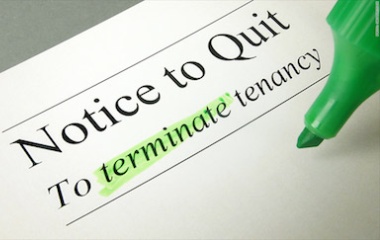
People convert to Judaism for all kinds of reasons. Ideally, one may accept only those who convert due to a love of Judaism; those who see the beautiful and eternal truths of Judaism.
In reality, many who convert do so for some type of ulterior motive – most commonly because they have fallen in love with a Jew[1]. Yet few and far beween are those who convert to save money. Being Jewish means additional, not fewer, expenses; kosher food adds hundreds of dollars a year to one’s food budget; tefillin, mezuzot, tzizit, etrog and other religious items can cost thousands of dollars; housing in a Jewish neighbourhood can add tens of thousands to the cost of a home; and educating one’s children means hundreds of thousands, perhaps over a million dollars of additional expenses. The cost of being Jewish – especially for a Jew committed to traditional observance – is so high that many have opted out, not because of lack of interest or even commitment, but because of simple economics[2].
To come across the suggestion that one might convert for economic benefit is rather startling. Yet such a fear actually impacted on the Jewish laws of interest. Of course, in a society where Jewish education was a communal responsibility paid for by all and made “free” for students – as Talmudic law demands (Bava Batra 21b) - such is not quite as ridiculous as it sounds today, but it still is rather fascinating.
Given that it is allowed to charge interest on transactions between Jews and non-Jews but not between Jew and Jew, the Talmud discusses the case of a non-Jew who has arranged an interest-bearing loan with a Jew but then converts before the loan is due. (Nothing gets by our rabbis!) With the interest due after the conversion to Judaism, only the principle can be paid back[3]. But what if, the Talmud asks, right after the loan, a contract is drawn up with the loan and the interest due combined into a “new principle” amount due?
Whether one can collect on the interest depends on when the principle and interest were bundled together into a new principle amount.
“Our rabbis taught: If an Israelite borrowed money on interest from a heathen and then recorded them [the principal and the interest] against him as a loan, and he [the creditor] became a proselyte: if this settlement preceded his conversion, he may exact both the principal and the interest; if it followed his conversion, he may collect the principal, but not the interest” (Bava Metzia 72a).
It should make little difference if the convert is the one loaning the money or the one being loaned the money. If the interest and principle were combined into one new loan before the conversion, then one may pay the entire amount, “interest” included; if, however, the interest was rolled into the principle after the conversion to Judaism, it becomes a forbidden form of interest. And this is in fact the ruling of the Sages.
However, Rav Yossi argues that when the non-Jew borrowed the money from the Jew “[whether conversion preceded the settlement or the reverse] he may collect both the principal and the interest” (Bava Metzia 72a). Despite the fact that when the interest was due, the “non-Jew” had already converted, Rav Yossi argues the full amount – interest included - is due. The reason given for this has nothing to do with the laws of interest. “Rava said: What is the reason of Rav Yossi? So people shall not say he converted for the sake of money.[4]”
What an astounding and sad comment. If the halacha stated – as it theoretically should - that one could not collect interest from this new member of the Jewish community, people would be wont to say that this goy (that is probably how they would say it) only converted because he did not want to pay the interest and by converting, he found a way to avoid the payment.
There is no reason to think such an accusation is true. In fact, if said today it would be ludicrous considering, as we noted above, the extra expense involved in becoming Jewish[5]. Not only may it be ludicrous, it likely is a violation of the serious prohibition – one mentioned more than any other in the Torah – of ona'at hager, causing anguish to a convert. Yet such is the nature of people, and the rabbis wanted to ensure no such claim could ever be made. Better to insist that the convert pay the interest than to have him subject to the misplaced taunts of others. And undoubtedly, those taunts would lead some to question the validity of the conversion, something that is not allowed even if he did in fact convert for money. While it might be “unfair” to the convert in the short term, it is a necessary measure to ensure the long-term acceptance of this convert.
And while the view of Rav Yossi may have begun as the minority view, it is the one accepted by the Talmud itself – and subsequently by the major codes of Jewish law. “Rava said in the name of Rav Chisda in the name of Rav Huna: The halachah follows Rav Yossi.”
[1] According to Talmudic law, one is not supposed to accept as candidates for conversion those with any sort of ulterior motives. The enormous changes to Jewish life in the modern period have caused many authorities to rule that today, we should accept such converts – as the alternative is likely to be much worse. The minimum standards needed for conversion are a subject of intense debate and need not concern us here.
[2] At a panel discussion called "Where is Orthodoxy Headed?" (featuring Rabbis Marc Angel, Mark Dratch, Shaul Robinson and Dr. Rivka Schwartz) one of the topics highlighted was the high, almost unbearable, cost of living an Orthodox (especially Modern Orthodox) lifestyle. Among the many casualties, and one not often noted, is the choice of career such a financial burden has caused. The idea – and pardon the politically incorrect reality – of (primarily) Jewish males becoming social workers, teachers, librarians, musicians, filmmakers, chefs, barbers, bus drivers, or even scientists is almost laughable. Thankfully, such is not the case in Israel, where Orthodox Jews can do all of the above and more – something that is not possible when paying five or six-figure tuitions year after year. You can listen to this insightful discussion here.
[3] While it is true that some of the interest may have accrued before the conversion, the rabbis forbade taking even that interest. Collecting interest from a Jew is not looked upon favourably by our sages.
[4] Remarkably, the Gemara does not address the halachic basis for Rav Yossi to ignore the prohibition of having a Jew pay interest. Whatever it may be – and there must be one – the Gemara’s interest is elsewhere.



